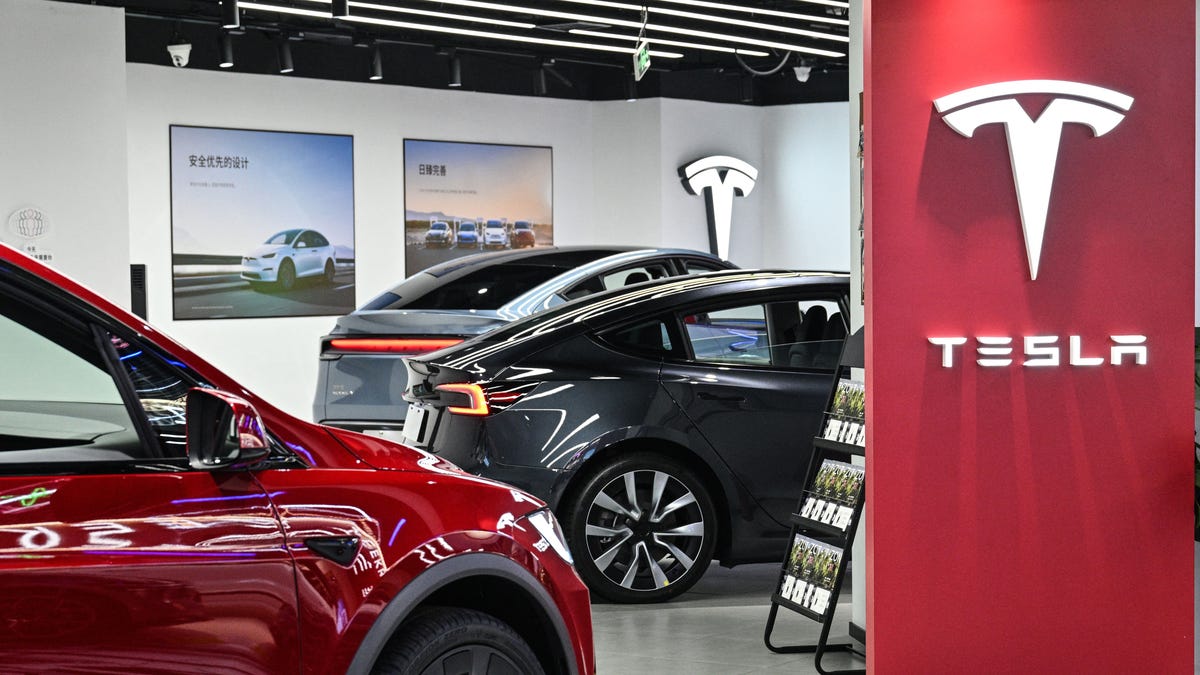Tesla’s Leap Towards Full Self-Driving: Paving the Way for Change in China
As Tesla advances its Full Self-Driving technology, China stands on the brink of an automotive revolution. With a burgeoning demand for smart transportation solutions, the implications of Tesla’s innovations could reshape the future of transportation in one of the world’s largest car markets. This article delves into the potential impacts of Tesla’s Full Self-Driving (FSD) technology on China, exploring its significance for consumers, the automotive industry, and the economy at large.
The Rise of Full Self-Driving Technology
Tesla’s FSD technology represents a significant leap in automotive innovation. Designed to enable vehicles to navigate and drive with minimal human intervention, FSD encompasses advanced features such as automatic lane changes, traffic light recognition, and even the ability to navigate city streets. With Tesla’s commitment to continuous software updates and improvements, the technology is evolving rapidly.
In China, where rapid urbanization and a growing middle class are shaping consumer preferences, the arrival of FSD technology could not be more timely. The Chinese automotive market is already one of the largest in the world, and the appetite for electric vehicles (EVs) continues to surge. With the government’s push for greener transportation solutions, Tesla’s FSD could be the catalyst that drives widespread adoption of autonomous vehicles.
Shaping Consumer Behavior in China
The introduction of Tesla’s FSD technology is poised to transform how consumers in China perceive and utilize vehicles. Here are some profound shifts that may occur:
- Increased Convenience: With FSD, the traditional role of the driver could change dramatically. Commuters may find themselves using travel time for work, relaxation, or entertainment, redefining the car from a simple means of transport to a mobile workspace or leisure zone.
- Safety Enhancements: Tesla’s FSD aims to reduce accidents caused by human error, which remains a significant issue in China. With advanced sensors and artificial intelligence, FSD could lead to safer roads and fewer traffic fatalities, a critical concern for urban planners and policymakers.
- Shift in Vehicle Ownership: As ride-sharing and autonomous vehicles become more commonplace, the traditional model of car ownership may decline. Consumers might opt for on-demand transportation services, leading to a rethinking of vehicle ownership dynamics in cities.
Impact on the Automotive Industry
Tesla’s leap towards Full Self-Driving technology is not merely a boon for consumers but also represents a seismic shift for the automotive industry in China. Here’s how:
- Competitive Pressure: As Tesla sets the benchmark for autonomous driving, Chinese automakers are likely to accelerate their own FSD projects. Companies like NIO, Xpeng, and BYD are already investing heavily in autonomous technologies, aiming to compete with Tesla’s innovations.
- Collaborative Opportunities: Tesla’s advancements may foster partnerships between tech firms and traditional automakers. The integration of software and hardware will be crucial for developing effective autonomous systems, and collaboration could lead to breakthroughs that benefit the entire industry.
- Regulatory Challenges: The introduction of FSD technology will necessitate new regulations and standards. Policymakers in China will need to address safety, liability, and insurance issues surrounding autonomous driving, which could shape the regulatory landscape for years to come.
Economic Implications of Tesla’s Full Self-Driving Technology
The economic ramifications of Tesla’s advancements in FSD technology extend beyond the automotive sector. Here are some potential impacts on the Chinese economy:
- Job Transformation: While the rise of autonomous vehicles may lead to job displacement in traditional driving roles, it could also create new opportunities in tech-driven fields. The demand for software engineers, data analysts, and vehicle maintenance professionals will likely increase as the industry evolves.
- Increased Productivity: If FSD technology enhances commuting times, it could lead to increased productivity in the workforce. Workers may be able to utilize their travel time for professional tasks, ultimately benefiting the economy.
- Boost to the EV Market: As Tesla’s FSD technology attracts more consumers to electric vehicles, the overall demand for EVs in China could surge. This shift could stimulate investments in battery technology, renewable energy, and charging infrastructure, further propelling economic growth.
Challenges Ahead for Full Self-Driving Deployment
Despite the exciting potential of Tesla’s FSD technology, several challenges loom on the horizon:
- Technological Hurdles: While Tesla has made significant strides, perfecting autonomous driving technology is no small feat. Achieving full autonomy requires overcoming complex scenarios and ensuring reliability in diverse conditions.
- Public Acceptance: Gaining consumer trust in FSD technology will be critical. Education and outreach efforts will be essential to assuage fears related to safety and reliability.
- Infrastructure Readiness: The existing infrastructure in many Chinese cities may need upgrades to accommodate autonomous vehicles. Investments in smart traffic systems and vehicle-to-infrastructure communication will be vital for seamless integration.
The Future of Transportation in China
The trajectory of Tesla’s Full Self-Driving technology suggests a future where transportation in China could be more efficient, safer, and environmentally friendly. As urban areas grapple with congestion and pollution, the adoption of autonomous electric vehicles could provide significant relief. With continued advancements and collaboration across sectors, the dream of a fully autonomous transportation ecosystem could become a reality.
In conclusion, Tesla’s leap towards Full Self-Driving technology is more than just a technological advancement; it’s a potential game changer for China. As the world’s largest automotive market stands ready to embrace this revolution, the implications for consumers, the industry, and the economy are profound. While challenges remain, the optimistic outlook for a future where autonomous vehicles are a common sight on Chinese roads is undeniable. The journey towards this automotive revolution is just beginning, and all eyes are on Tesla as it leads the charge.
See more Future Tech Daily

